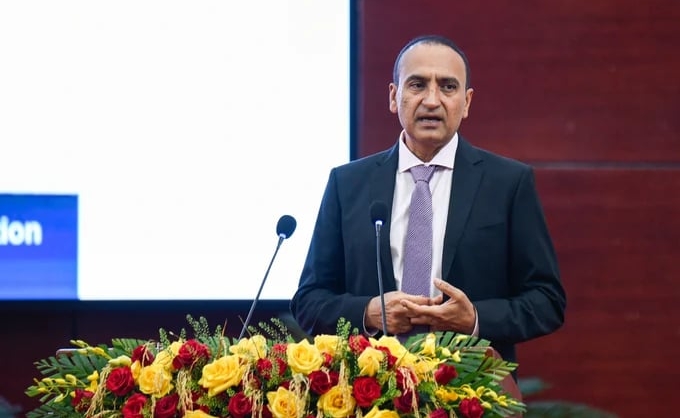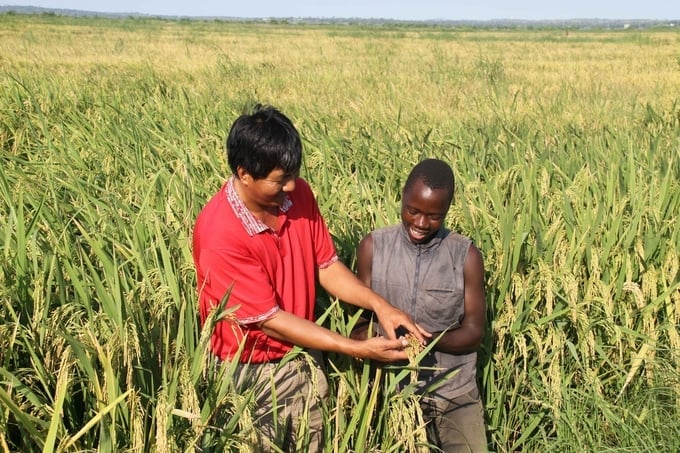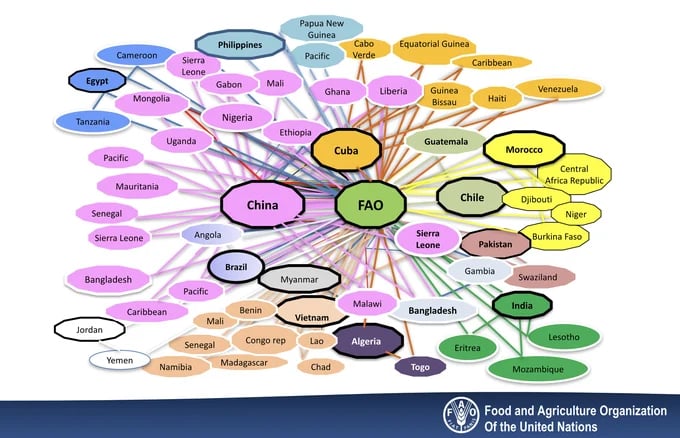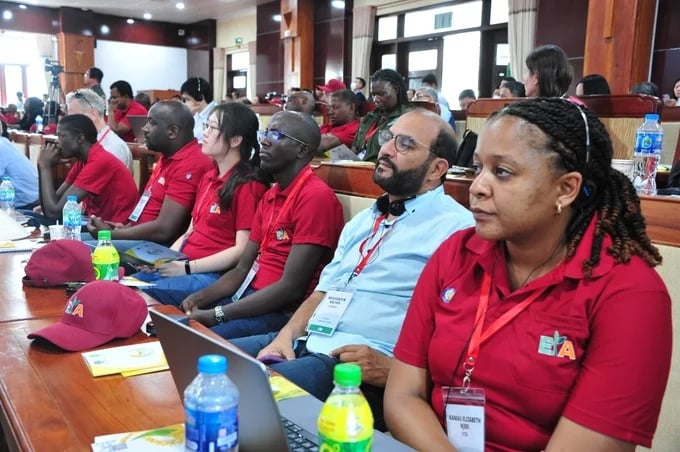November 25, 2025 | 15:30 GMT +7
November 25, 2025 | 15:30 GMT +7
Hotline: 0913.378.918
November 25, 2025 | 15:30 GMT +7
Hotline: 0913.378.918

Aziz Arya, the Expert in South-South and Triangular Cooperation, FAO Regional Office for Asia and the Pacific.
South-South Cooperation (SSC) is essential in promoting sustainable development in Asia. This is the foundation for open exchange, expanding development solutions, knowledge, experience, policies, technology, and know-how between countries and organizations in the Global South. For the Food and Agriculture Organization of the United Nations, SSC is a complement to the North-South cooperation mechanism (between developed and developing countries).
To implement SSC, it is necessary to build flexible, professional institutions that are adjusted to suit countries' priorities. Technical synchronization guidance from central to local levels is important for successful cooperation. The FAO expert believe that when they come to work and demonstrate technology directly, agricultural extension officers will help farmer households better understand the types of machinery. This helps close the gap in technological skills, helps farmers reduce confusion, and ensures innovative ideas are applied in the field.
Aziz Arya, the Expert in South-South and Triangular Cooperation, FAO Regional Office for Asia and the Pacific, said: "Building capacity and institutions is the key for countries to cooperate effectively. We strive to organize learning, exchange, and training trips in the locality where the project is implemented. Only when going to the field can we adjust, replicate, and systematize models based on inter-regional cooperation."

Agricultural extension officers help farmer households help them better understand different types of machinery.
Not only supporting local agricultural development, South-South Cooperation also addresses plant diseases, cross-border animal diseases, food safety, trade and research issues.
For the training of agricultural, human resources, exchanges within the network of institutes and schools will spread general knowledge and introduce new scientific topics.
FAO has considerable experience in implementing SSC. For more than 20 years, FAO has coordinated with more than 20 countries, sending 3,000 experts to more than 60 countries for technical exchanges. More than half of those experts come from China. Researchers have introduced hundreds of new crop varieties and demonstrated hundreds of new technologies, making an essential contribution to sustainable development in Asia.

For more than 20 years, FAO has coordinated with more than 20 countries, sending 3,000 experts to more than 60 countries for technical exchanges.
Cooperation between Nigeria and China under the FAO SSC model focuses on rice-fish farming to improve income for small households. In recent years, SSC in Nigeria has deployed 35 rice-fish demonstration models in 8 provinces, expanded rice-fish production over 10,000 hectares, and nearly doubled rice and tilapia production in some localities.
Also, in Asia, cooperation between Japan and FAO within the SSC framework has strengthened rural capacity through 15 training courses, with the participation of 52 experts from 7 ASEAN countries (Cambodia, Indonesia, Laos, Malaysia), Philippines, Thailand, and Vietnam).
In addition, the institutionalization of agricultural education experience has been successfully implemented in 13 Latin American countries and 5 African countries. This model has brought about practical Tripartite cooperation, improved food security and nutrition, created household market access, and created learning opportunities.
In South America, the partnership model between FAO and Brazil focuses on providing development solutions in agricultural education to help transform food systems. Models of training chefs, collaborating with family farms to provide safe food to schools, and agricultural education in school gardens... not only help smallholder farmers increase production but also create a sustainable environment for young people to access agriculture.

International experts attended the Vietnam-Africa Policy Dialogue Workshop.
FAO experts also emphasized Vietnam's responsibility. Vietnam has shared experience and provided technical support through experts and long-term technicians to 12 African countries. Many successful examples have been recorded in Senegal, Chad, and Namibia. The results are clear as rice production in Senegal has increased to 10 tons/hectare, an important achievement driven by the South-South cooperation model.
Mr. Aziz Arya called on international representatives at the Vietnam - Africa Policy Dialogue Workshop to continue cooperating with FAO. With more than 70 years of experience in international cooperation, FAO ensures technical supervision so that the countryside meets international standards. Prestige with multilateral development banks and a global network of scientific research partners help FAO identify necessary resources for developing countries.
"FAO acts as an honest partner and intermediary, ensuring all parties comply with agreed roles and responsibilities. We bring international experience, historical stories, and long-term development traditions to all over the world," the FAO expert emphasized.
Translated by Tuan Huy

(VAN) In addition to strengthening the relationship between schools and enterprises, the Aus4Skills project expands opportunities for female students and people with disabilities to work in the transport and logistics sector.

(VAN) Nghe An is preparing policy, technical, and resource steps to participate in the forest carbon credit market.
/2025/11/25/1648-2-110733_532.jpg)
(VAN) From 2011 to 2023, Ca Mau province lost approximately 6,200 ha of coastal land and protection forests due to erosion, threatening many residential areas, infrastructure facilities, and production zones.

(VAN) Quang Ngai holds strong potential for carbon credits but needs a clear legal and policy framework to secure sustainable revenue from this resource.

(VAN) With its diverse ecosystem, Phu Quoc National Park plays a vital role in environmental protection and biodiversity conservation and serves as the core zone of the Kien Giang World Biosphere Reserve.

(VAN) Cooperation activities under the Aus4Skills program focus on: logistics professional development, competency-based training and assessment (CBTA), leadership innovation, and digitalization.

(VAN) Minister Tran Duc Thang has affirmed that the models developed by Que Lam Group serve as a practical foundation for the Ministry of Agriculture and Environment to direct wide-scale replication.